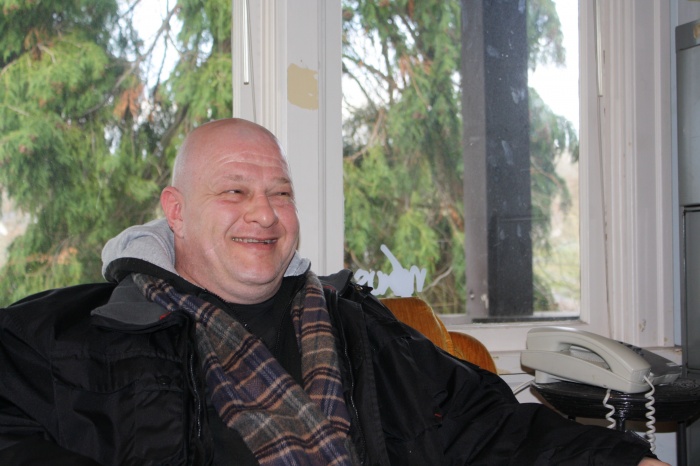Africa Calling, the organization that started on Camosun College’s campuses, has come a long way since we last checked in with them. In fact, they’ve gone to Africa and back. But now the student-created charity is also reaching out to the local community.
Since 2011, Africa Calling has collected nearly 3,000 used cell phones to redistribute in rural African villages in Ghana, Zimbabwe, Kenya, Malawi, Zambia and Sudan, providing tools to increase literacy, connect families, and increase safety for Africans.

Kevin Davis, who started it all in 2011 when he was a Camosun student (he’s now at UVic), has never been to Africa himself, but he didn’t let the limits of student obligations, time, or finances stop him from piloting the project, which also makes donations to local people in need.
“This is social work, and I didn’t need my degree to do it,” he says. “I just put my hand up to volunteer and now I’ve probably given out even more phones locally than I have to Africa at this point.”
Eventually his classmates, faculty, local businesses and even international NGOs began supporting the program. Davis says the phones are carefully sorted and designated for use in Africa, but a lot of the phones that can’t be used abroad, for whatever reason, are donated locally.
“Many of the donated phones that don’t have a SIM card are given to local women’s shelters, community centers, and other social service agencies in Victoria,” explains Davis, “that’s empowering local people to be more equipped to get jobs, a place to live, and reconnect with society.”
Other than the benefits that those in need, both locally and afar, receive from the donated phones, Davis also notes that the program has long-lasting environmental rewards.
“It’s also very important to understand the environmental impact cell phones have when they aren’t recycled correctly or reused,” he says. He estimates that up to two million cell phones are improperly discarded in landfills every day. “And we can do something to change that,” he says.
Davis says his 2011 sociology class at Camosun, taught by Dr. Francis Adu-Febiri, was the inspiration for Africa Calling. Davis, who has since shared his experience with Adu-Febiri’s subsequent classes, wants similar service-oriented courses available in schools from a younger age.
“We’re trying to contact the Ministry of Education to make service learning a standard curriculum throughout Canada,” he says, “so people can realize that you can make a difference even if you’re ‘just a student.’”
